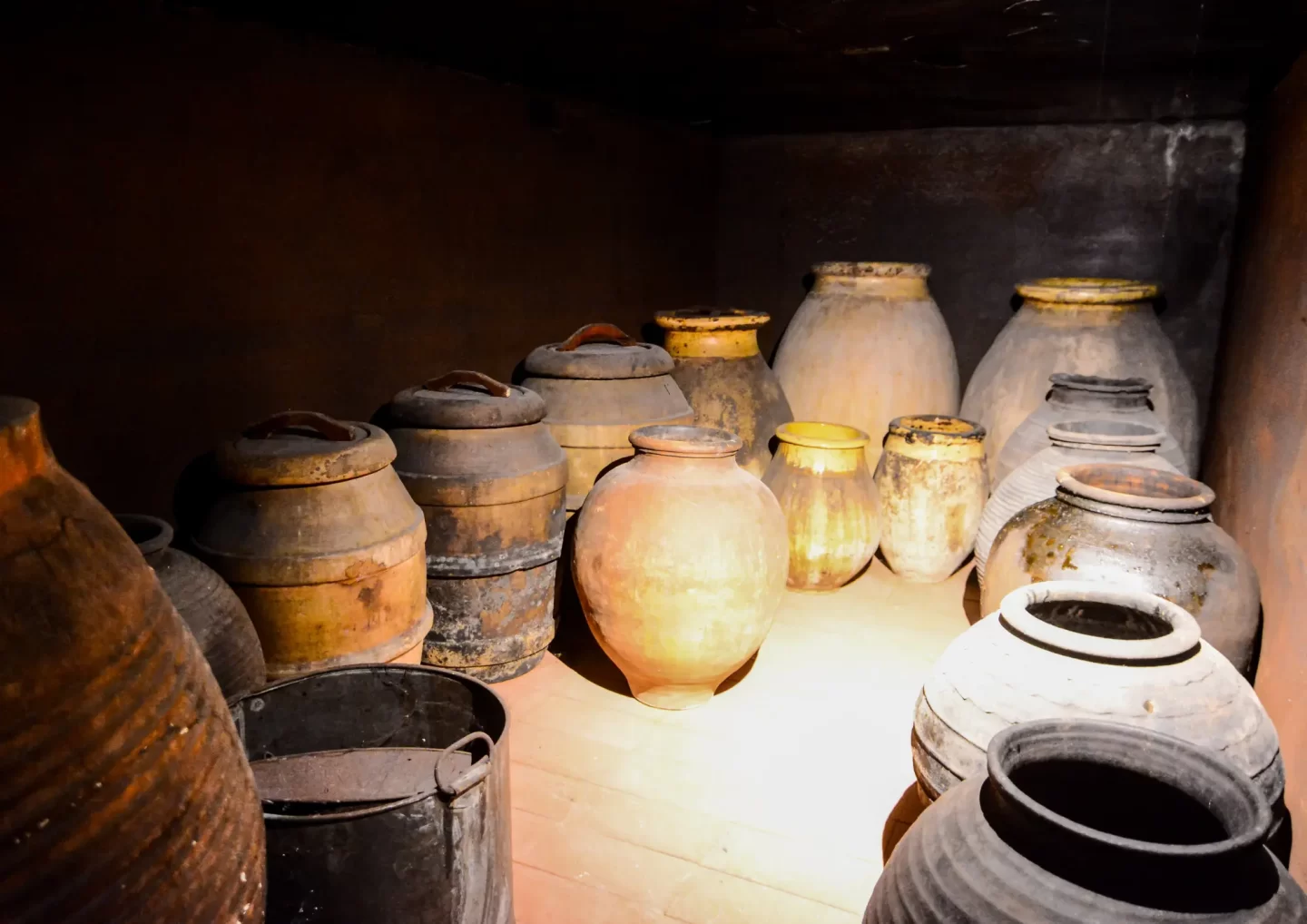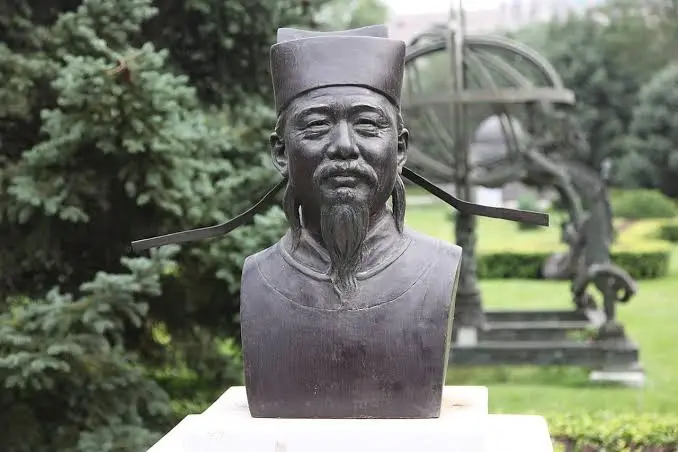Ever curious on who drilled oil first? The answer is far from certain, and the facts on this subject are subject to debate in some countries. In this article, we will attempt to separate fiction from reality. We wish to shed a light on what this title really means and what countries may have a claim to it.
Many countries have an extensive history of using oil for a variety of purposes. This history of oil has been shaped by technological advancements regarding its extraction and refining. In turn, oil shaped our societies as it enabled us to extend our capabilities beyond what was humanly possible. However, nowadays society is transitioning away from oil and towards new energy sources.
The historic role of oil in our society is clearly important. The fact that the title of who first produced oil is highly contested is no surprise. Furthermore, this title is often subject to national pride. This achievement is not just a historical footnote but a mark of industrial and technological prowess. It influences everything from economical growth to geopolitical dynamics.
What does “being the first country to produce oil” actually mean?
First, let’s talk about what the title of “first title to produce oil” actually entails. There are a variety of ways one can define this claim, but in the absence of a clear way, we would like to talk a bit about it.
The claim of being the first country to produce oil hinges on how one defines “production”. It can range from incidental collection to systematic extraction and commercialization. In some places in the world, finding oil to exploit was as easy as digging a shallow hole, this is also known as surface extraction. Furthermore, there are many important milestones which can mark an important moment in oil history; they include initial discovery, first drilling, first commercial exploitation, and first large-scale refining.
Lastly, to decide which one of these milestones is truly important is subjective. It is often done in such a way to advance implicit interests. Who is to say that drilling the first drop of oil was more important than actually commercialising it en masse, or vice versa?
The absence of a universally accepted definition means many different countries can claim this title. They often base their claims on different milestones. This article will explore various claimants, each significant in its own right, from Ancient History to Modernity.
Who drilled first? Ancient History: China
The ancient Chinese pioneered drilling technology over 2,250 years ago. Initially, they focused on the extraction of brine. The first recorded salt well in China was in Sichuan Province, where they drilled manually using hand tools and shovels. By the early 3rd century AD, they were using percussive methods to drill wells up to 140m deep. The drill bit was made of iron and the pipe was made of bamboo. The local bamboo was used both for the drill pipe and for connecting the gas wells to the salt springs because of its light and hollow nature. This innovative drilling process used bamboo rigs and a seesaw-like lever system to gradually advance through the rock. Some speculate that percussive drilling was inspired by the pounding of rice into flour.
A major challenge during the operation was to ensure an adequate fuel supply. Observers noted the presence of abundant gas and oil along with brine, which fortunately turned out to be flammable. This led to more oil and gas wells being drilled nearby, some to depths of over 240 meters. These newly discovered resources were then transported to the salt springs using special bamboo pipes. Thus, the initial exploration and exploitation of oil and gas is a remarkable interplay of salt, bamboo and gas.
After that, drilling technology continued to develop, and the ancient Chinese also began to use oil in different ways. A Chinese scientist named Shen Kuo recorded the oil in details in his book Dream Pool Essays in A.D. 1088:
“…I believe that the soot can be used, so I collect some of it and make an ink stick which is as dark and bright as black paint. The quality of this kind of ink stick is even better than the one made of pine soot. …I know that it[oil] will certainly become popular, because there is plenty of petroleum in the world which can spring up from the underground inexhaustibly.”
Shen Kuo
The drilling technique by iron and bamboo can still be seen in China today, when rural farmers drill water wells. Because of the lack of scalability, this technique is not widely used in drilling oil wells. In 1950, China began to adopt modern drilling techniques and become the sixth-largest oil-producing country in 2023.
19th Century: The black gold rush
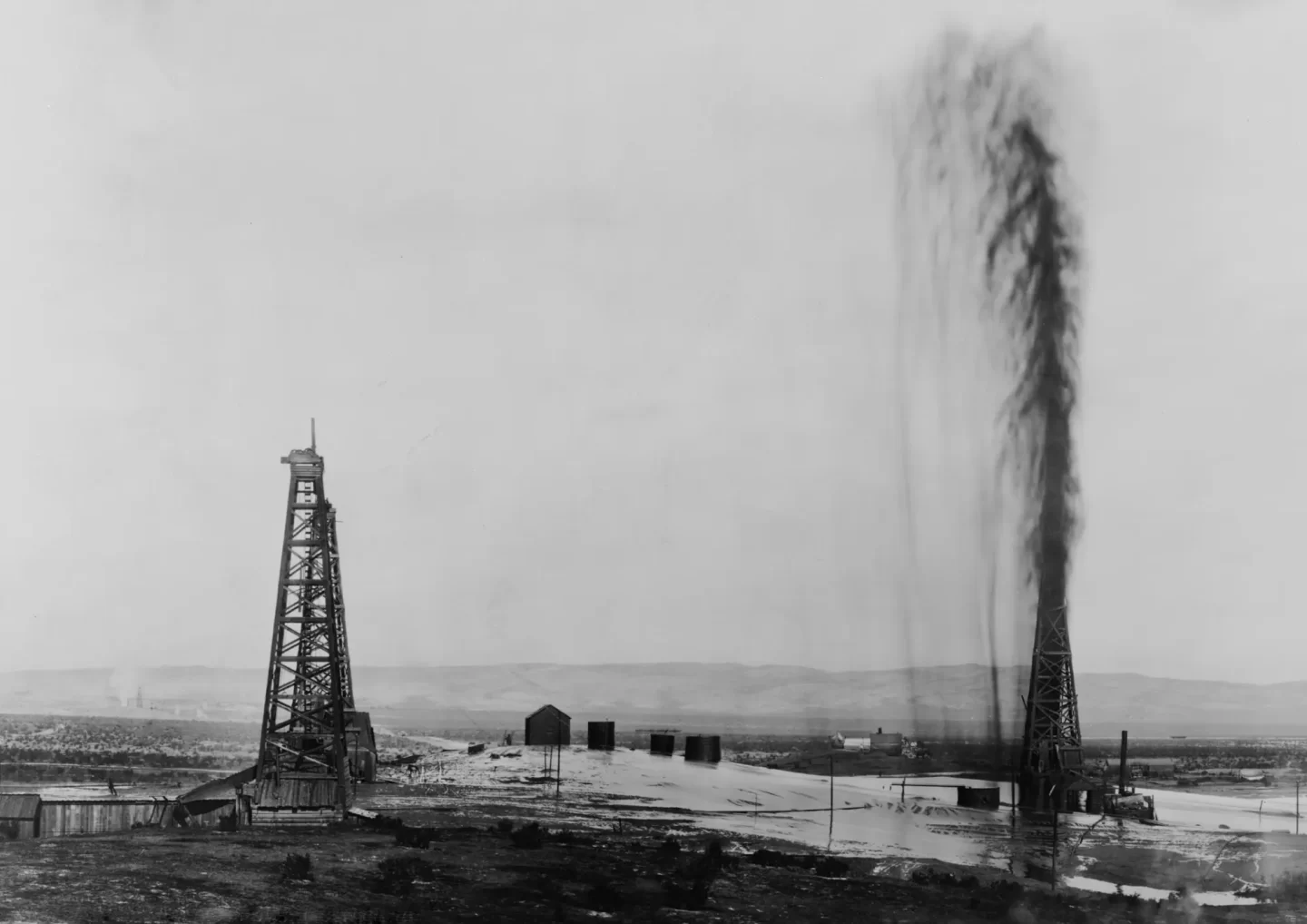
With the discovery of kerosene and paraffin oil during the 19th century, liquids produced from oil became important. These were useful for heating or machine lubricating purposes.Thus, exploitation attempts began all over the world within a short time span of 20 years.
Russian Empire
The Absheron Peninsula, near Baku, holds what many consider to be the first real oil well in the world. It was drilled by Russian Major Nikoly Matveevich Alekseev in 1846. That being said, some do not consider this to be the first oil well as it still used human/horsepower to pump the oil instead of using an engine. Shortly, companies run by the Rotschild family and the Nobel brothers started exploiting the Baku oil field. Famously, Winston Churchill stated: “if oil is a queen, then Baku is her throne”. In the Russian Empire, the first small refineries were created in the Urals. However, these did not reach mass production. By 1908, 30% of the world’s oil came from Baku.
Poland and Romania
Two other countries that have taken the lead in pioneering petroleum exploitation and refining are Poland and Romania. Both these countries have significant oil histories, with Poland opening its first hand-powered drilling well in 1853, and Romania following suit in 1857. Poland can also claim to have built the first small-scale distillery outside of the Russian Empire, at Jaslo.
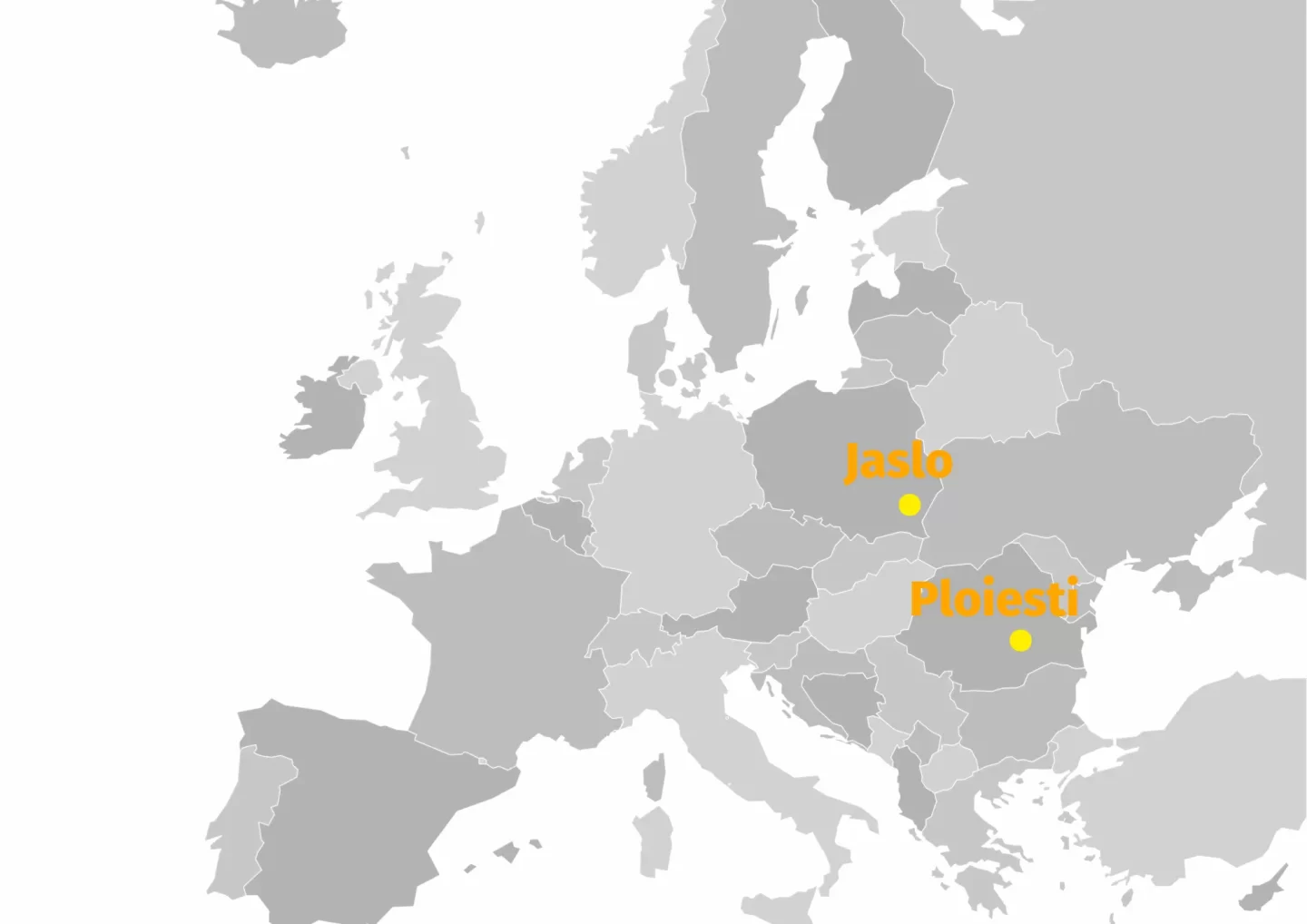
However, the reason why these countries are considered to be so important in the history of oil is due to their refining exploits. The Rafov oil refinery, near Bucharest, is widely considered to be the first systematic oil refinery in the world. It had a surface area of over four hectares. That is why Bucharest is the first city in the world to be illuminated by distilled crude oil. In 1857, Romania produced over 275 tonnes of crude oil. This feat made it the country the world’s largest producer of petroleum at the time.
The USA
Another serious claimant to the “who drilled oil first” question are the United States of America. The latter half of the 19th century witnessed the United States emerging as a central figure in the global oil industry, due to groundbreaking discoveries and rapid industrial expansion. In 1875, David Beaty unearthed crude oil in Warren, Pennsylvania. His discovery catalyzed the development of the Bradford oil field, propelling it to become one of the world’s largest oil suppliers. By the 1880s, this field alone was contributing a staggering 77 percent of the global oil supply, illustrating the rapid pace and scale of U.S. advancements in oil exploration.
Parallel to this, in 1853, Samuel Kier established America’s first oil refinery in Pittsburgh, setting a precedent in oil processing and utilization. Meanwhile, across the border, Canada’s Oil Springs witnessed a similar surge in activity. Discovered by James Miller Williams in 1858, this region quickly transformed into a bustling hub for petrochemical refining and exchange. These North American developments were crucial in shaping the early landscape of the oil industry, predating the more celebrated Drake’s Well, which later came to symbolize the birth of modern petroleum exploration.
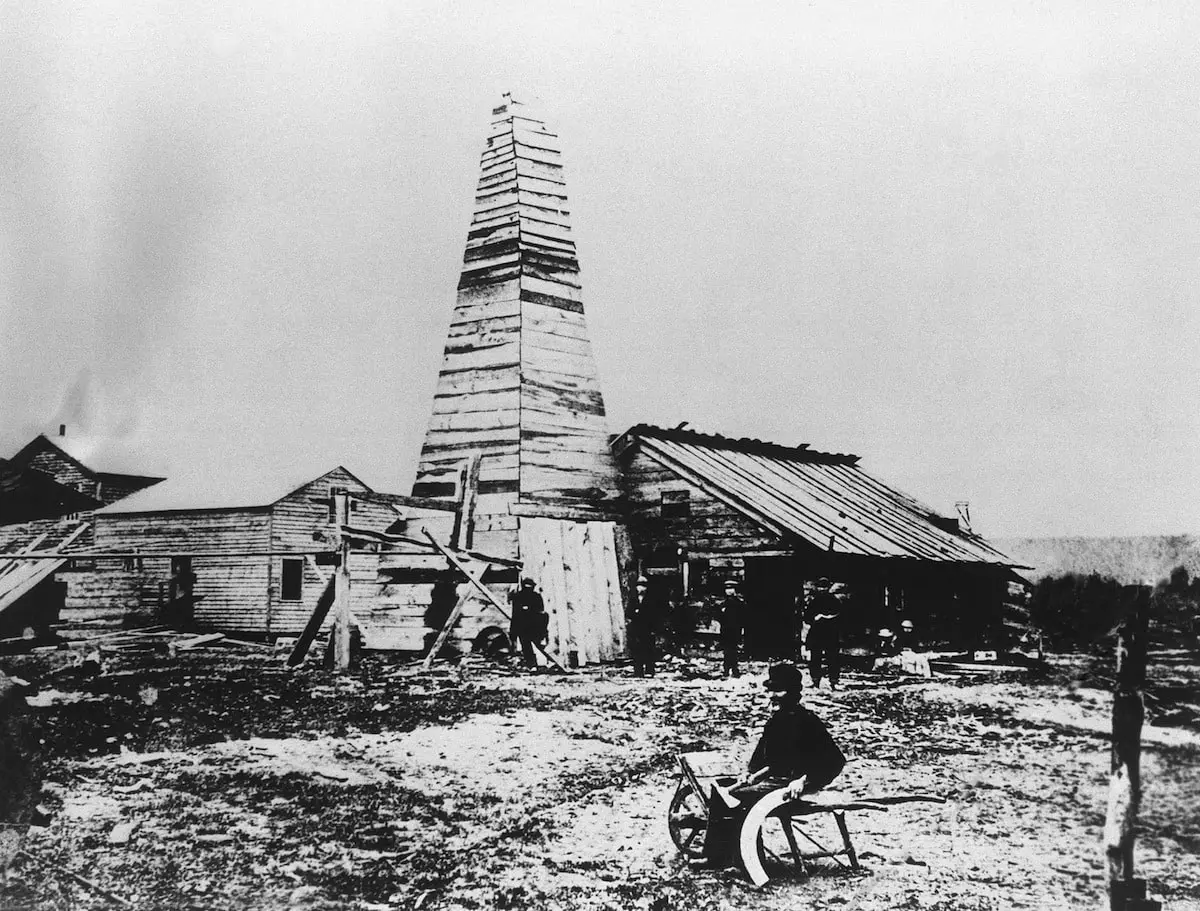
Edwin Drake’s drilling of an oil well in 1859 on Oil Creek near Titusville, Pennsylvania, marked a crucial moment in the history of oil. Commissioned by the Seneca Oil Company, Drake’s well initially yielded a modest 25 barrels per day. Yet, its significance lay not in its immediate output but in its demonstration of practical oil extraction, setting a new standard in the industry. This event is often celebrated as the commencement of the modern petroleum industry. It marks a shift from surface collection methods to drilled extraction. This will define future endeavours in oil exploration.
The ensuing growth of the U.S. oil industry was fueled by the surging demand for kerosene and oil lamps. Later, the advent of the internal combustion engine further contributed to oil demand. However, by the end of the 19th century, global dynamics shifted. The Russian Empire, particularly the Branobel company in Azerbaijan, began to lead in oil production. Nonetheless, the contributions of the U.S. during this era laid the groundwork for the global oil industry. They established methods and standards that continue to influence oil production to this day.
So Who Drilled Oil First?
In answering the question, “Who drilled oil first?”, we find that the history of oil drilling is not defined by a singular event or nation, but rather by a series of pioneering efforts across different cultures and time periods.
The Chinese were arguably the first to undertake systematic extraction of oil using innovative drilling techniques. This was over 2,250 years ago, and it is a testament to early human ingenuity. However, the 19th century marked a pivotal era where countries like Russia, Poland, Romania, and particularly the United States, propelled the industry into the modern age with significant advancements in drilling and refining. The U.S., with key figures like Edwin Drake, played a crucial role in transforming oil drilling into a cornerstone of the industrial revolution.
To conclude, while the title of “first to drill oil” cannot be definitively attributed to a single country, it becomes clear that each nation mentioned contributed uniquely and significantly to the evolution of oil production. “Who drilled oil first?” then becomes the wrong question to ask. From ancient practices to industrial-scale extraction, the journey of oil drilling is a testament of human progress and technological development.

